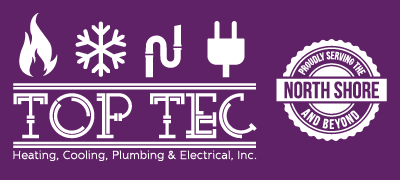Everyone’s always looking to save money on their utility bills, but it turns out there’s a way to lower energy use, even when you’re not even home.
The secret is your thermostat. By making the most out of your thermostat, you can help the thermostat plan for your preferred temperatures. You can create a number of automated temperature settings for when you’re at home, away or even when you’re asleep.
With a few simple adjustments, you have more time to enjoy pleasant temperatures while also keeping more of your money. Here are some ways your thermostat doesn’t have to use up all your summer spending money:
While at Home
When you’re home, you want a nice range of pleasant temperatures. For the most part, you probably have your thermostat lower in the summer while inside to appreciate the cool air.
But the most energy-efficient temperatures for when you’re in your home during the summer is usually between 78 and 80 degrees Fahrenheit. With this adjustment, you can stay cool while still lowering your monthly energy bill.
While Away
When it comes to setting the temperature for when you are out of the house in summer, it’s advantageous to set the thermostat higher than you would if you were in the house.
If your home is located somewhere a little cooler, you can set the thermostat to higher temperatures like 88 degrees while no one is home before you adjust it back to the sweet spot of 78-80 degrees when you or a family member return. This way, your air conditioning won’t have to work constantly to cool an empty house.
While Asleep
To enjoy a good night’s sleep during the summer, you want a temperature that’s nice and cool. You should try and keep things between 68-72 degrees Fahrenheit. This will keep you from getting too hot or too cold at some point overnight.
Additional Ways to Reduce Energy Use:
- Put in a smart thermostat: Switching to a smart thermostat in the summer is an excellent way to reduce energy costs by automatically adjusting to your lifestyle and home environment. They can lower the temperature while you are home or sleeping, while allowing it to get a little warmer when the house is empty. With models like the Lennox iComfort, you are able to adjust settings and schedules through your smartphone, tablet or laptop. Requesting smart thermostat installation in your Libertyville home is an effortless way to set the correct temperature even when you aren’t home.
- Upgrade your HVAC system: A new HVAC system is another great option for long-term energy savings. If a system boasts high energy efficiency, lower utility bills won’t be far behind since it requires less energy to achieve comfortable temperatures. Air conditioning installation in Libertyville is only a phone call away, so don’t hesitate to reach out to local pros like TopTec who can set you up for success.
- Keep up with AC maintenance: Hiring a skilled professional to perform regular air conditioning maintenance in Libertyville can have a significant impact on your utility bills. By regularly cleaning the coils, checking for damage and clearing air vents of dust and debris, you may notice your HVAC system perform better during day-to-day use.. Increasing efficiency also limits strain on the unit and lowers operational costs, resulting in lower energy usage and subsequently, smaller bills.
- Clean or replace the air filter on a regular basis: Cleaning or replacing the air filter regularly saves money by helping air flow efficiently through your air conditioner. When filters are old and less effective, air conditioners have to work harder, and this greater strain could shorten the system’s life span and result in breakdowns.
- Check if you have enough insulation in the attic: Insulation is a vital part of maintaining an energy-efficient home, securing the hot air outside and the cool air inside during the summer. The North American Insulation Manufacturers Association (NAIMA) suggests that homeowners living in southern climates should have at least 13-14 inches of insulation, while those in northern U.S. states should have 16-18 inches.
- Check your ductwork: Damage to the ventilation is capable of increasing your energy bills much more than 20 percent, plus it can potentially allow harmful emissions from your water heater, clothes dryer and other appliances to get into the atmosphere of your home. Checking your ductwork for leaks and sealing them can address both concerns.
- Seal all other leaky spots in your home: Sealing up other leaks in your home with caulk, foam sealant or weather-stripping helps keep things cooler during those hot summer days. You should also check for any gaps around windows, doors and even outdoor fixtures. Making time to seal leaks now can help you save a lot in the long run.
